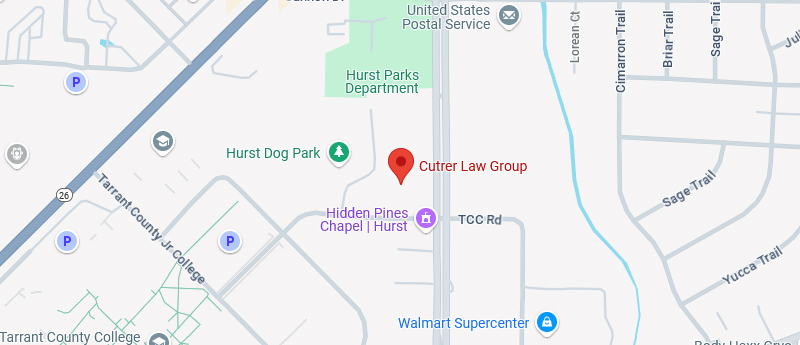What Is a Guardianship and When May I Need to Appoint One?
Legal guardianship means that a specifically appointed person is legally responsible for handling another person’s day-to-day needs. There are essentially two kinds of guardianship: guardianships of the estate or of a named person.
As a guardian of an estate, you would manage someone else’s finances, assets, real estate, money, etc. If you’re appointed a guardian of a specific person, you will manage their physical and personal needs, such as what they eat, medical decisions, housing, and more. In Texas, you can be both a guardian of the estate and a person simultaneously.
Anyone who requires a guardian usually has been found incapacitated in some way, and the courts appoint the guardian. You or the proposed guardian must provide medical documentation and other necessary proof to prove the person needs a guardian. If the Texas court agrees that guardianship is essential and makes a finding of incapacity, it will then appoint an appropriate person to act as guardian.
In most cases, some types of individuals who would require a guardian are:
- Adults that have physical disabilities, including mental illness.
- Children who have disabilities who are reaching 18 years of age.
- Older adults with mental health issues such as dementia, Alzheimer’s, etc.
- Children who inherit or receive valuable property and are under the age to manage it.
Deciding if a person needs a guardian and who to appoint is often challenging, stressful, and sometimes emotional. In these cases, the guidance of an experienced, empathetic, and knowledgeable family lawyer is invaluable in helping to make these sometimes tough decisions.
What Are Some Common Legal Grounds for Contesting a Texas Guardianship?
Myriad reasons exist for the guardianship to be challenged in Texas. However, every case is unique, and many challenges are based on the guardian’s ability to properly and honestly care for their ward.
Just a few common grounds for contesting a guardianship in Texas may include:
- The appointed guardian neglects their ward’s care or refuses to provide necessities or proper medical attention.
- The guardian has been accused of financial, physical, emotional, or sexual abuse against their ward.
- Your guardian has been convicted of a crime, such as fraud or another type of misrepresentation.
- The guardian does not follow the orders outlined in the guardianship agreement.
- The guardian is accused of charging exorbitant and unnecessary fees to the ward’s estate.
When a guardian is challenged, the Texas court will hold a hearing to decide if the grounds for challenging the guardianship are legitimate. Evidence will be presented during the hearing to attempt to prove the accusations.
If the court feels that the evidence supports the challenge, it usually determines whether a new guardian is needed and who that person should be.
This is not a commonly simple or straightforward legal process, and it’s always wise to have a skilled, thorough, and compassionate family lawyer thoroughly investigate your case before it’s presented to the court. Your lawyer will know precisely what to look for, gather all the evidence, and diligently and professionally fight for the ward’s best interests.
Can I Contest a Guardianship if the Guardian is Already Appointed?
Under Texas law, you can contest a guardianship before and after they’re appointed. Let’s say you plan to challenge the guardian before they’re appointed. In this case, you could appear at the hearing and present rational evidence that disputes the proposed guardian’s ability to care for their ward. Your diligent and well-versed family lawyer will prepare all the evidence and arguments for the hearing and file the necessary, needed, and proper paperwork.
In most cases, challenging guardianship after they’ve been appointed is a more demanding and complex legal process. First, you must file a formal complaint with the appropriate Texas court.
Then, depending on the case’s circumstances, the court will either set a hearing or a trial to hear all the evidence and determine if the challenge is legitimate.
However, you do have options If you oppose guardianship after it is already established, such as:
- Your lawyer will file a formal motion to set aside the guardianship order on the grounds of wrongdoing.
- Petition the court to remove or replace the guardian due to their inability or failure to perform their prescribed guardianship duties.
- Petition the court to end an unnecessary and no longer needed guardianship.
Additionally, suppose you feel that the ward may be in imminent danger. In that case, your family law attorney, well-versed in these matters, will quickly request an emergency hearing to protect their safety.
What Are Some Basic Steps in Challenging a Guardianship in Court?
First, you must understand and make clear the basis upon which your challenge is based.
You can use such facts as:
- General incompetence – You may feel that the person placed under guardianship (aka ward) is not actually incapacitated and challenge the evidence or evaluation that led to the guardianship in the first place.
- Improper appointment of the guardian – You can legally challenge the person appointed as the guardian, especially if they deem them unfit for the job, have viable conflicts of interest, or were not the best choice.
- There were legal or procedural errors – There might have been blatant mistakes in the legal process or violations of the ward’s rights. Your family lawyer would raise those concerns in your challenge.
Your lawyer must then file a formal complaint with the Texas court overseeing the guardianship to challenge the guardianship decision legally.
In most cases, you would need to:
- Request a formal court review – Petitioning the court to review the existing guardianship order.
- Provide rational and clear evidence – Submit evidence supporting your position (such as medical evaluations, bank statements, financial records, or testimonies).
A hearing will be scheduled after you file your petition to review your challenge thoroughly. At this hearing, you and your lawyer can present evidence and witnesses that support your position; the present guardian will also be able to present their case.
At the court hearing, you and your well-versed lawyer must use the evidence gathered to demonstrate why the guardianship should be modified or revoked.
Just a few of the things you might use for this purpose are:
- Experts witness testimony from medical professionals, accounts, etc., about the ward’s ability (or inability) to make decisions.
- Factual evidence of the current guardian’s misconduct or incompetence.
- Alternative rational solutions to the current guardianship that the court should consider, etc.
You must be aware that challenging guardianship can be a tricky legal process involving highly complex issues regarding the ward’s rights and well-being; it’s invariably a complex legal process that should always be managed by a highly recommended and experienced family lawyer specializing in Texas guardianship cases. Your experienced family law team will significantly help guide you through the process, file the necessary documents, and successfully represent you in court.
I’m Considering Challenging a Guardianship in Texas; How Should I Proceed?
Every contested guardianship case is unique in the circumstances surrounding this emotional issue and the facts involved. Therefore, a case of this type deserves and must have a tailored legal approach to help ensure you and your family reach a desirable outcome.
The experienced, compassionate, and diligent family lawyers at the Cutrer Law Group will professionally and effectively assist you with all aspects of your guardianship contest; they are fully aware of how difficult and stressful these decisions can be.
Call them today at 817-854-1651 for a consultation on your unique case, and feel confident that they will always act in your, your family’s, and the ward’s best interests.





 1845 Precinct Line Road
1845 Precinct Line Road info@akcfamilylaw.com
info@akcfamilylaw.com 817-854-1651
817-854-1651



